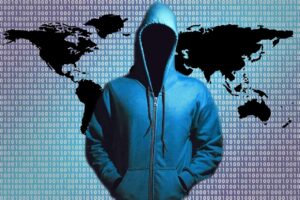Hacking refers to the practice of identifying and exploiting security vulnerabilities in computer systems or networks, often with the intention of accessing personal or business data without permission. Although not all hacking activities are motivated by malicious reasons, the term is often perceived negatively due to its close association with cybercrime.
Table of contents
What methods do hackers use to break into systems? To achieve their goals, they employ a wide range of strategies. This article provides an overview of the most common methods.
Social Engineering: Manipulating Others
This technique relies on exploiting human errors to gain access to sensitive information. Hackers use deception and psychological tricks, such as phishing attacks, spam messages, or fake websites, to obtain personal or financial data.
Password Theft
Through various approaches, like brute-force or dictionary attacks, hackers attempt to decrypt passwords. These methods involve systematically trying all possible combinations or using commonly used passwords to gain access to accounts. Because many users reuse the same password, these relatively simple methods are still lucrative.
Malware Insertion
Hackers aim to install malicious software on users' devices, often via emails, downloads, or peer-to-peer networks, to cause unnoticed damage or steal data. The malware opens up a wide range of possibilities for them to steal, corrupt data, or gain access to infected computers.
Exploiting Insecure Networks
Public, unsecured Wi-Fi networks offer hackers an easy way to penetrate devices. They specifically look for unprotected connections to use as entry points. In some known cases, they rented rooms in hotels and then spied on all other guests over the WLAN for weeks.
Access through Backdoors
By developing special programs that search for unprotected paths in networks, hackers can gain unnoticed access. This often occurs through the installation of Trojans, which secretly collect or manipulate data.
Email Monitoring
Hackers can develop their own codes to intercept and read emails, although many email services offer encryption that prevents reading without special keys.
Keylogging
With special software that records every keystroke, hackers can spy on sensitive information such as passwords and personal data.
Control over Zombie Computers
A computer controlled by hackers can be misused for spam distribution or DDoS attacks by unknowingly connecting the victim to the attacker.
How Can You Protect Yourself from Hacking?
Absolute protection does not exist, as computer systems are too complex. New vulnerabilities always emerge, which manufacturers of hardware and software must recognize and close. Nevertheless, there is a series of practices that serve to effectively arm oneself against hacker attacks. Therefore, pronounced cyber security discipline is essential. Here are simple measures that should be taken.
Use of Robust Passwords
The goal of many hackers is to gain access to your passwords. Therefore, it is crucial to choose strong and unique passwords for each of your online accounts. A robust password consists of a combination of at least 12 (preferably more) letters, numbers, and special characters, including a mix of uppercase and lowercase letters. Using a password manager can be very helpful to keep track of your various passwords.
Implementation of Multi-Factor Authentication (MFA)
Wherever possible, you should activate two-factor or multi-factor authentication for your online accounts. MFA requires an additional form of verification besides the password, usually through a code generated by an app or sent via SMS, thus offering an additional layer of security.
Caution with Phishing
Many hacker attacks start with phishing attempts via email or SMS. It is important to be vigilant: If you receive an unexpected email or message with a link or attachment, be cautious. Do not open messages from unknown sources, click on links, or open attachments whose origin is unclear. Also, immediately delete messages that seem suspicious to you.
Use Secure Network Connections
Make sure to use secured and trusted network connections, especially when transmitting sensitive information online. Avoid using public Wi-Fi networks for financial transactions or sending confidential data. Consider using a Virtual Private Network (VPN) to encrypt your internet connection and protect your online activities.
Regular Software Updates
Keep your operating system, your browsers, and all installed apps up to date. Software developers regularly release updates to close known security gaps. By installing these updates, you can minimize the risks of your systems being compromised by hackers.
Caution with Sharing Personal Information
Be cautious about the information you share online, especially on social media. Hackers can use this information to conduct targeted phishing attacks or answer your security questions and gain access to your accounts.
By implementing these guidelines, you can significantly improve your cyber security and more effectively protect yourself against the advanced techniques of hackers.
How Much Damage Can Hackers Cause?
Hacker attacks can cause significant damage. Regardless of the technique involved, a hacker who has gained control over your data or devices can initiate a variety of actions:
- A criminal can steal your money and open credit card and bank accounts in your name.
- This can also destroy your creditworthiness.
- New PIN numbers or additional credit cards can be requested.
- He can go shopping online in your name.
- Offenders can add themselves or a controlled alias as an authorized user to obtain credits.
- The payment of advances can be initiated.
- Sensitive data like the social security number can be exploited and misused. However, the problem primarily exists in the USA, where it serves as a central ID.
- Someone can sell your data to others who pursue their own disreputable and often criminal goals.
- Important files can be deleted or damaged on your computer.
- Blackmail with sensitive personal information. There is a threat of publication or disclosure.
What Factors Motivate a Person to Engage in Hacking?
The reasons that motivate someone to become a hacker are decisive for whether this person acts legally or not. It is important to emphasize that not all hackers act with bad intentions.
Financial Incentives
Often, it is financial motives that drive hackers. Those with the necessary skills can earn considerable sums by stealing passwords or tapping into bank and credit card information. Ransomware attacks represent another lucrative source of income, where hackers demand ransoms for the release of encrypted data or sell this data in the darknet.
Economic Espionage
The goal of some hackers is to obtain confidential information from competitors to gain a market or information advantage. In this context, confidential data and intellectual property are intercepted. Occasionally, it is also employees who spy on insider information, thus causing damage to their employer.
State Espionage
Governments employ hackers to steal secret information, manipulate elections, gain access to governmental or military documents, or destabilize the political structure. Especially critical infrastructures like hospitals and power plants are increasingly becoming targets of such attacks.
Retaliation
Some individuals turn to hacking out of revenge, to retaliate against individuals or organizations they feel have treated them unfairly. This form of hacking can pursue political goals or be seen as hacktivism when hackers believe they are fighting for a just cause.
Hacktivism
Hacking can also serve as an expression of civil disobedience to support political or social movements. An example of this is the movement Anonymous.
Ambition and Competition
Some hackers are driven by the desire to demonstrate their skills and gain recognition for their achievements. They compete in contests and seek validation in the hacker community and on social networks.
Security Research
Not all hackers have malicious intentions. In the case of white hat hacking or penetration testing, the goal is to uncover security vulnerabilities and thus increase security for users. This ethical hacking contributes to making the digital world safer.
In addition to the above, the technologies and methods in hacking continuously evolve, creating new challenges and opportunities for security experts and criminal hackers alike. The increasing connectivity of everyday objects in the Internet of Things (IoT) opens up new attack surfaces, while at the same time, the demand for security experts capable of protecting these systems is growing. Ethical hacking and cybersecurity education are gaining importance as companies and organizations realize how crucial it is to proactively defend against potential threats and secure their data and systems. In this dynamic environment, hackers, whether with good or bad intentions, play a central role in shaping the future of digital security.
FAQ on Hacking
Who are Ethical Hackers?
Ethical Hackers, also known as White Hat Hackers, are security experts who penetrate systems with the permission of the system owners to find and fix security vulnerabilities. Their work helps to enhance the security of systems and protect them from criminal attacks.
How do people become hackers?
The path to becoming a hacker can start with a passion for computers, programming, and network systems. Many hackers are self-taught, while others undergo formal education in cybersecurity or computer science. A deep understanding of operating systems, network protocols, and programming languages is essential.
What are the most common targets of hackers?
Hacker targets vary depending on their motivation. Criminal hackers often aim at financial information, personal data, or corporate secrets. Ethical Hackers focus on uncovering and fixing security vulnerabilities to prevent cyber attacks.
What is Phishing?
Phishing is a common hacking technique where fraudsters attempt to steal sensitive information such as usernames, passwords, and credit card details by masquerading as a trustworthy entity in electronic communication.
Can hacking be legal?
Yes, when it occurs within the scope of Ethical Hacking or penetration testing, where hackers are hired by organizations to test their systems for vulnerabilities. These activities are legal and aim to improve cybersecurity
What is Ransomware?
Ransomware is a type of malware that encrypts data on the infected system and demands a ransom from the user for decryption. Ransomware attacks can have devastating effects on individuals and organizations.
How does a DDoS attack work?
In a Distributed Denial of Service (DDoS) attack, hackers flood a network or website with so much traffic that the service is overwhelmed and legitimate users can no longer access it. Such attacks can temporarily or permanently cripple websites.
Can smartphones be hacked?
Yes, smartphones can be targeted by hackers just like computers. Attacks can occur through malware, phishing, insecure Wi-Fi networks, or by exploiting software vulnerabilities. Users should take precautions such as regular updates, downloading apps only from trusted sources, and using security apps.
What is a Man-in-the-Middle attack?
In a Man-in-the-Middle attack (MitM), the attacker inserts themselves between two parties to monitor, intercept, or manipulate data being exchanged between them. These attacks can occur in unsecured Wi-Fi networks or through malware.
Why is cybersecurity important?
Cybersecurity is crucial to protect personal data, corporate secrets, and government information. With increasing connectivity and digitalization, the risk of cyber attacks also rises, highlighting the importance of protective measures and awareness.
What is a Zero-Day Exploit?
A Zero-Day Exploit takes advantage of a security vulnerability in software or hardware that is not yet known to the manufacturer. Attackers can exploit these vulnerabilities before a patch or update is available, making them particularly dangerous.
How do hackers stay anonymous?
Hackers use various techniques to conceal their identity and locations, including the use of VPNs, proxy servers, Tor networks, and other anonymization services. Such measures make it difficult to trace their activities.





